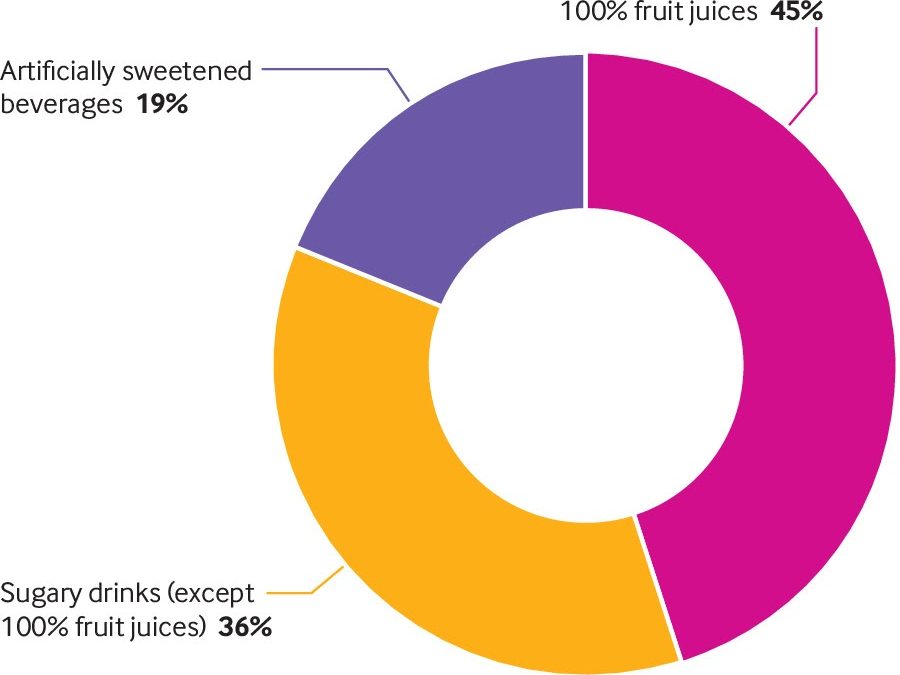The consumption of beverages with artificial sweeteners and high natural and added sugars has increased dramatically over the past two decades. Between 1990 and 2016, sugary drink consumption has increased by 40%. Beverages with a high concentration of sugar have been proven to have a detrimental effect on global health. Obesity, diabetes, hypertension, and cardiometabolic deaths are often a result of the consumption of sugary beverages.
Beverages with added sugars and natural sugars impact visceral fat ( a body fat stored around vital organs such as the liver and pancreas), blood sugar levels, inflammatory markers, and other additives all of which are linked to increased cancer risk. Though all data was collected from an observational study, the research broadened factors of cancer amongst a very specific topic. According to the research team, the information collected should be replicated in larger-scale studies to verify the impact of sugary beverages and the risk of developing cancer. Small steps in eliminating sugary beverages could play a major role in improving overall health. Opt for water with a squeeze of lemon next time you crave Sprite because one drink will add up to many. It is better to get a head start on healthy choices!
About 178,000 yearly deaths were attributed to sugary drinks. A new study conducted by Nutri-NetSanté (a French web-based cohort) has found that a potential attribute to cancer is sugary drinks. However, not enough evidence can conclude if this is 100% true since very few studies have been conducted on the link between sweetened beverages and cancer. The findings of this study were based on the results of 101,257 healthy French adults (21% men, 79% women), with an average age of 42. Health events were self-declared by those participating through a yearly check-up questionnaire. Declarations of incidental cancer were controlled by a physician from the study team who contacted participants and asked them to provide relevant medical records. Two 24-hour dietary questionnaires were completed by each participant, for a maximum of nine years. Age, sex, education level, family history of cancer, smoking status, and physical activity level are all risk factors of cancer that were taken into account. For example, the average daily consumption of sugary drinks was higher in men than in women. Men consumed 90.3 ml each day, while women consumed 74.6 ml. During follow-ups, 2,193 first cases of cancer were diagnosed and validated: 693 breast cancer, 291 prostate, and 166 colorectal cases. The average age of cancer diagnosis is 59 years. The results showed that a 100 ml daily increase of sugary drink consumption is associated with an 18% risk of acquiring cancer, and a 22% risk of breast cancer, specifically. The types of sugary drinks being consumed are taken into account. It is hard to determine the relationship between sugary drinks and prostate & colorectal cancers because of the limited amount of cases. Sugary drinks, such as fruit juices, both contribute to a higher risk of cancer, but no association could be found for prostate and colorectal cancers. Though beverages with added sugars and fruit juices contribute to the risk of cancer, no link could be found between artificially sweetened beverages and cancer. This may be because there are few participants in the case study that consumed beverages with artificial sweeteners. However, there are risks of consuming artificially sweetened drinks. Artificially sweetened beverages were, at first, considered a healthier alternative to beverages with added sugars. Now, artificially sweetened beverages are associated with a higher incidence of hypertension, obesity, and Type 2 Diabetes.
Sources:
Article – British Medical Journal
-Marine Bigos ’22


Recent Comments